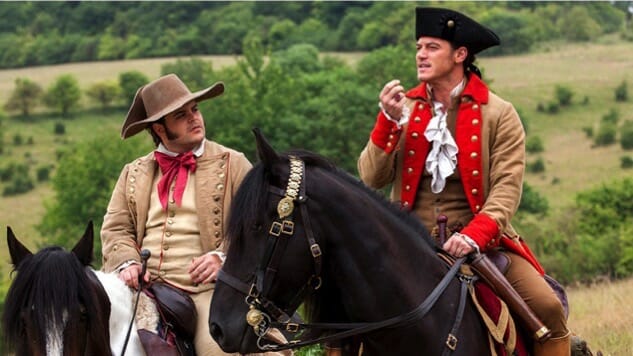GLAAD’s Annual Report Reveals Pitiful Lack of LGBTQ Representation in Film
Photo by Laurie Sparham/Disney
Major film studios did a pretty dismal job last year with lesbian, gay, bisexual, transgender and queer (LGBTQ) representation, according to the latest report issued by GLAAD.
Just 18.4 percent of the films produced by the seven studios that GLAAD examined—20th Century Fox, Lionsgate Entertainment, Paramount Pictures, Sony Pictures, Universal Pictures, Walt Disney Studios and Warner Bros.—featured an LGBTQ character. Overall, the number of films with LGBTQ characters increased by only one from 2015.
Out of that 18.4 percent, 58 of the 70 characters that GLAAD identified in 2016 were gay men. Further, racial diversity in films with LGBTQ characters decreased from 25.5 percent in 2015 to 20 percent in 2016.
Nearly half of the mainstream films to feature LGBTQ characters gave them no more than one minute of screen time. Only nine films passed the Vito Russo test, which measures how well-rounded and integral a character is.
-

-

-

-

-

-

-

-

-

-

-

-

-

-

-

-

-

-

-

-

-

-

-

-

-

-

-

-

-

-

-

-

-

-

-

-

-

-

-

-








































